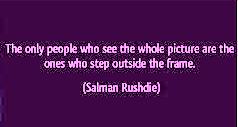Having worn strong eyeglasses for all of my childhood and half of my teenage years until I got contact lenses, that weight on my face was just part of my life. The bridge of my nose had a constant red mark and was always sore, since my glasses were made of heavy thick glass. I could sometimes feel the weight pulling down on my ears too.
When I got contact lenses, I was so excited to be able to see without glasses, to go out in the rain and not have them get wet, I didn’t pay much attention to what the lack of frames on my face meant to my vision. I still had a strong correction, and was many years away from starting vision improvement. I wasn’t very tuned into my eyes or my vision back then. My only goal was to see well enough to function, and contact lenses seemed to be the answer.

After wearing contact lenses every waking minute for many years, I had to get used to eyeglass frames again when I started improving my vision. As I reduced my prescription, I spent more time without any correction at all, letting my natural unaided vision reach out. I found myself wanting to take my glasses off so I didn’t have to deal with looking around the frames, just as much I wanted to take them off to not have lenses in front of my eyes. It seemed that if I deviated my gaze a speck away from dead center, there I was looking right into the frame of my glasses. How annoying!
Now I don’t wear glasses, so the frames blocking or fencing in my vision isn’t an issue any longer. Yet I can still find myself letting an artificial boundary block my gaze, as if some part of me is reluctant to “color outside the lines”. When I started driving with glasses again after wearing contacts for so long, the frame of my car body, between the windshield and side window, seemed like a huge blockade to me. I could actually feel myself unwilling to look past it to see out the side window, as if I wouldn’t be able to get back over it again to look out the front of the car.
As part of my daily vision improvement practices, I notice what is in my periphery, letting my gaze easily roam overhead and out to the sides. I am slowly breaking the tendency to act like I have blinders on (this word makes me cringe), and can only see what is straight ahead. Often I catch myself hesitating to look past some boundary, be it a telephone pole outside or the edge of a wall indoors or the frame of an open window. When I see I’m doing this, I gently allow myself to look. It feels daring, like I’m swimming outside the ropes, in the area of the lake meant for adults. But I’m an adult now myself, and my growing visual confidence says I can see or swim wherever I want.
So as I continue this vision practice of easing my gaze wider and farther, I’m not missing the metaphor. Where else might I be unnecessarily restricting myself? Is there some other area I’m assuming there are boundaries I can’t go past, so I don’t even consider it? I haven’t finished exploring this question.
Meanwhile, you might look into this too. Are you putting artificial limits on yourself which don’t need to be there? Maybe it’s just habit, the way you’ve always done things, or like me you’ve carried a childhood behavior forward when it doesn’t serve you now. I want to have the most expansive life possible, visually and otherwise, and I want that for you as well.
get help on our Facebook Group!

I wore strong glasses, then contact lenses, from age 5 into my 40s. While making many mistakes, eventually l learned how to improve the way I use my eyes and to see in a more relaxed, healthy manner. It is my pleasure to coach others to do the same. Visit me at https://NancyLNeff.com.